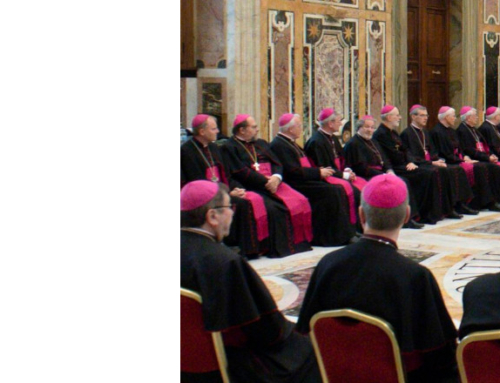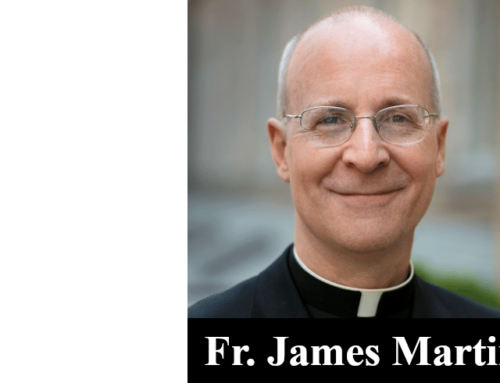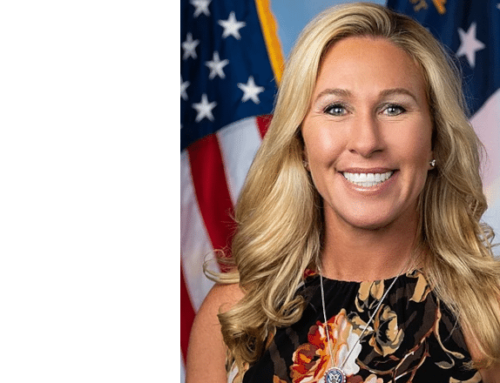Catholic League president Bill Donohue comments on a demand that Catholic hospitals be made illegal:
An editorial in today’s New York Times posits a conflict between religion and healthcare, abortion being the main focus. “Freedom of religion is essential—and so is access to health care,” it says. It should have stopped there.
Instead, the editorial says that “Current law tries to accommodate both, but the far right has stirred unfounded fears that religion (and Christianity in particular) is under assault, and that people of faith are in danger of being forced to do things they find morally objectionable.”
The far-right has stirred unfounded fears that Christianity is under assault? First of all, the term “far-right” is usually employed to describe the Klan or some assembly of racists or terrorists. Second, one does not have to be a Brownshirt to know that organizations such as the ACLU—which the Times favorably cites—have given Christians, especially Catholics, lots to fear. Importantly, their concerns are grounded in reason, not emotion. Here’s the proof.
A recently published report, “Bearing Faith: The Limits of Catholic Health Care for Women of Color,” is the most anti-Catholic document assessing Catholic healthcare ever published. The authors want to effectively shut down Catholic hospitals, unless, of course, they stop being Catholic. The report is the work of the Public Rights/Private Conscience Project, a unit of Columbia Law School. It draws on data supplied by MergerWatch.
MergerWatch is a child of Planned Parenthood. In the 1990s, MergerWatch was a project of the Education Fund of Family Planning Advocates of New York State. Family Planning Advocates is the lobbying arm of Planned Parenthood. MergerWatch frequently teams up with such groups as the ACLU, Catholics for Choice, NARAL, and other foes of the Catholic Church.
The report goes beyond the usual criticisms of Catholic hospitals made by the pro-abortion industry: It plays the race card, trying to paint Catholic hospitals as racist.
How does it manage to do this? It claims that African American women are more likely to go to a Catholic hospital than white women, and because Catholic teachings proscribe killing in the womb, this means that African American women are more subject to abortion restrictions. Of course, no one is forced to go to a Catholic hospital, and everyone knows, or should know, that abortion is not sanctioned by the Catholic Church.
The authors are so desperate in their attempt to brand the Catholic Church as a racist institution that they include a statement about slavemasters who raped black women. So what does this have to do with the Church? Nothing. Even the authors do not attempt to pin this on the Church, but the fact that it is included in a report on Catholic healthcare makes it clear what they want readers to believe.
Unfair as this part of the report is, what is really driving the authors is an animus against Catholic teachings on life. To be specific, they cite the “Ethical and Religious Directives for Catholic Health Care Services” that was issued by the United States Conference of Catholic Bishops. Their major objection? The Church’s teachings on abortion. They know, however, that in order to accomplish their goal, they must throw the kitchen sink at the Church, hoping something sticks.
Most Americans, including those who are not Catholic, have no problem with Catholic hospitals, but this doesn’t stop the authors from trying to portray this as a myth. They claim that Catholic hospitals “provide disproportionately less charity care than do public hospitals and other religious non-profit hospitals.”
The evidence the authors use to make this charge is from a report by the ACLU and MergerWatch in 2013. It found that public hospitals serve more Medicaid patients than Catholic hospitals do. So what? Why is this surprising?
Public hospitals are not likely to be located in wealthy neighborhoods: they are more likely to be in areas where the indigent live. More important, as even the report notes, Catholic hospitals have a better record of serving the poor than either secular non-profits or for-profit hospitals (the margin of difference between Catholic hospitals and religious non-profits is statistically insignificant).
The authors are so worked up over trying to stick it to Catholic hospitals that they even find fault with Catholic hospitals that don’t have Catholic names. For example, they find it objectionable that there are Catholic hospitals known as Affinity and AMITA. Again so what? As if every Catholic institution should have a name like St. John’s. By this logic, the founders of Stonehill College can be accused of trickery for not acknowledging its Catholic identity.
Also, it does not help the authors to cite a recent study showing that “37% of patients whose regular hospital was Catholic were unaware of its religious affiliation.” If the care were substandard, they wouldn’t be coming back.
Toward the end of the report, the authors critically cite several laws that protect the autonomy of religious healthcare institutions. This underscores my point: It shows that their real problem is the First Amendment. If they had it their way, the free exercise of religion provision would be excised. This is a serious charge—it demands serious evidence. Fortunately, the authors supply it.
Their first recommendation says it all: “Reform laws and policies that allow health care providers to refuse service on the basis of religious or conscience objections.” They could not be more clear—do away with all exemptions for religious hospitals. In short, force Catholic hospitals to be thoroughly secularized, thus neutering their Catholic identity. In short, this means making Catholic hospitals illegal. It would be like telling Jewish restaurants they can no longer serve kosher food, but they can stay in business if they want.
This is what the Catholic haters want. Alas, there is one saving grace: at least now no one can pretend that their goal is not to shut down Catholic hospitals.







